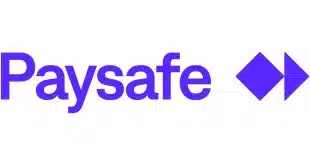The connection between computing capacity and payment practice is obvious to all. While passing coins hand-to-hand remains a ritual, the bulk of human transactions are carried out through electronic computing.
Now, all the computers that we know—mainframes, minis, PCs, tablets, smart phones, and so on—are a special case of a design offered by Alan Turing in 1937. This genius, who later almost single-handedly cracked the Nazi Engima code, preceded the first computer by almost a decade, and despite all the progress since, we have not yet improved on his design.
But that is about to change. The era of post-Turing computing is upon us. In the payment world, we ought to ask: How will quantum computing impact us?
Much as a sailboat sailor could have hardly predicted the impact of steamboats, so we are not well-disposed to foresee the coming changes due to computing based on subatomic reality. But one thing is for sure: Those who detect those changes earlier will pioneer the new payment reality.
Quantum computing exploits quantum physics, which even Albert Einstein referred to as “spooky” and “weird.” Richard Feynman declared that no one really understands it. The underlying principle is compelling: Use nature as a computer! It is possible today to predict the impact of a high-speed car crashing into a tree, but the calculations are overwhelming and time-consuming. Yet, in an actual crash, the totaled car and the broken tree are instantly visible in full detail. Nature exercised Newton’s mechanics that much faster than a Turing machine.
Why do we care?
E-commerce is based on asymmetric cryptography (it happens under the hood). Asymmetric cryptography is based on the assumption that a thief will be lost in cumbersome calculations trying to steal our money. Using quantum computers, though, the computational burden dissolves, and then our money disappears. Escaping to Bitcoin will not be an option, because Bitcoin, too, is based on the expectation that the thief has no quantum computer.
And that’s why you hear more and more the phrase, “post-quantum cryptography,” as a means of surviving this new global threat. The only problem is that quantum-computing research went dark. In the early 1940s, the Soviets realized that the U.S. was building an atomic bomb. How? Because, suddenly, the literature did not report on atomic research. The latest major public quantum-computing algorithms were discovered in the last century. Ever since, countries, big business, and underground organizations have been secretly advancing the state of the art. The prospect of a total collapse of financial cryptography is on the table.
The remedy to this risk is randomness-rich cryptography. By exploiting Moore’s Law for computer memory—making it easy to store and communicate randomness—it is possible to shift cybersecurity from calculation-load defense, which is threatened by quantum power, to randomness-based defense immunized to the quantum threat. Remember how slow the indisputable advantage of EMV was in becoming a payment reality? Expect the same turtle-like pace for switching ciphers to quantum-resistant status. Even payment professionals are unresponsive to this threat. Much more so are government and business leaders, who lack the imagination to foresee the extent of chaos and civil mayhem that will spread when the payment infrastructure crashes.
Ultra-fast quantum computers are not inherently bad. In fact, they will underwrite a new computing reality where all payment activities will be automatically done, with only high-level human guidance. Exact pricing, counting, change, receipts, tax payment—all this will all be carried out by a quantum-computing extension of the self. All currencies will be digital, all personal identities network-verified. Super sophisticated investment instruments will function as passable coins; accounting will be fully automated, with managed exposure. Some of these visions will happen much later than expected, some much sooner.
As we argue ad nauseam on EMV v. smart phone, NFC v. QR, and get all excited over the daily payment gimmick, we better take a deep breath, set our gaze on the fast-approaching horizon, and realize that the coming stress on our imagination will dwarf all this present excitement. The need to accept, to adapt, will be our main challenge, and more so for those of us who have been around the block a few times.
—Gideon Samid • Gideon@BitMint.com






